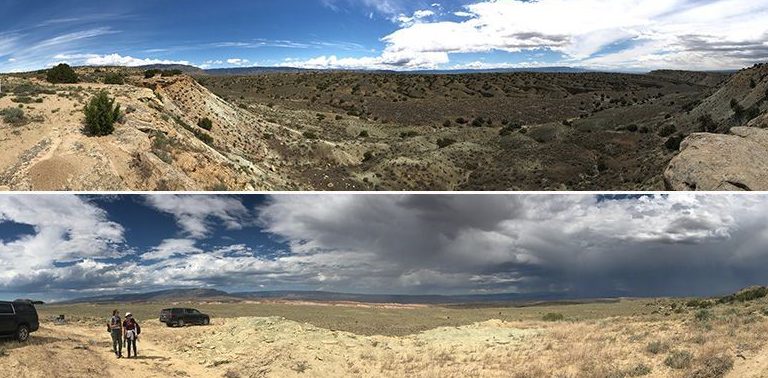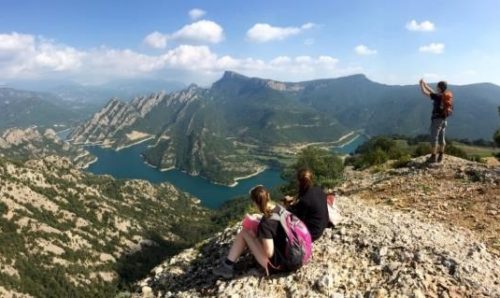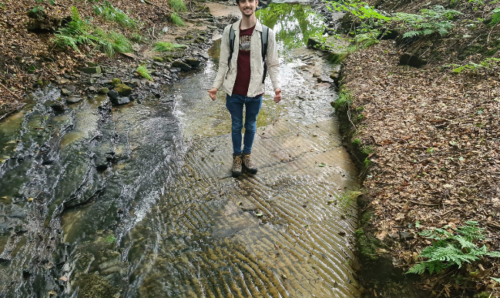Pathway Profile: Palaeobiology
Welcome to EES 20th August 2019
Dr Robert Sansom spoke to us about the Palaeobiology Pathway within our undergraduate Earth and Planetary Sciences degree.
The diversity of life on Earth today is staggering, but only presents one snapshot in time. The vast majority of species to have ever lived are now extinct. The fossil record uniquely allows us to reconstruct past life and its interactions, and also allows us to address big questions about how biodiversity is generated, the mechanisms and timescale of evolutionary change, the dynamics and scale of extinction events, and our own origins as humans. We have built upon the long history of palaeontological expertise at the University of Manchester to offer an exciting and truly multi-disciplinary Palaeobiology Pathway as part of our Earth and Planetary Science programme.
 Reconstructing the locomotion of a long extinct sauropod dinosaur in a computer simulation. Image credit: Professor William Sellers.
Reconstructing the locomotion of a long extinct sauropod dinosaur in a computer simulation. Image credit: Professor William Sellers.
We bring students right to the cutting edge of modern analytical palaeontology, far beyond finding and describing fossils. Students receive core training in geology, biology, and fieldwork. Also, throughout their course, students have massive flexibility in their individual choices: palaeontology is a broad church and we help students to find their own path with options from developmental biology and genomics to geochemistry and climate change, and everything in between. All students undertake an individual final year research project. The diverse topics covered include reconstructing the colours and preservation of dinosaurs, the biomechanics of walking and flight in extinct organisms, evolutionary relationships between fossil and modern groups, the nature of the ancient Cambrian diversification of animals, and using fossil proteins to identify remains. Students have the opportunity to receive direct training in modern techniques such as geological field work, computer simulations and programming, bioinformatics, biomechanics, laboratory experiments, geochemistry, high-end microscopy, and even working with particle accelerators. This experience along with the interdisciplinary training means that our graduates will be well placed for a future within the sciences, and beyond.
Read more about our undergraduate pathways on course profiles and the Department website.
 Manchester undergraduates have been in Wyoming this summer for the #MissionJurassic dinosaur dig, an international collaboration between the University of Manchester, The Children’s Museum of Indianapolis, The Natural History Museum London, and Naturalis Leiden.
Manchester undergraduates have been in Wyoming this summer for the #MissionJurassic dinosaur dig, an international collaboration between the University of Manchester, The Children’s Museum of Indianapolis, The Natural History Museum London, and Naturalis Leiden.
bioinformaticsbiomechanicsclimate changedinosaursearth sciencesEvolutionfossilsgenomicsgeochemistrymicroscopyPalaeobiologyPalaeobiology Pathwayparticle accelerators




Leave a Reply